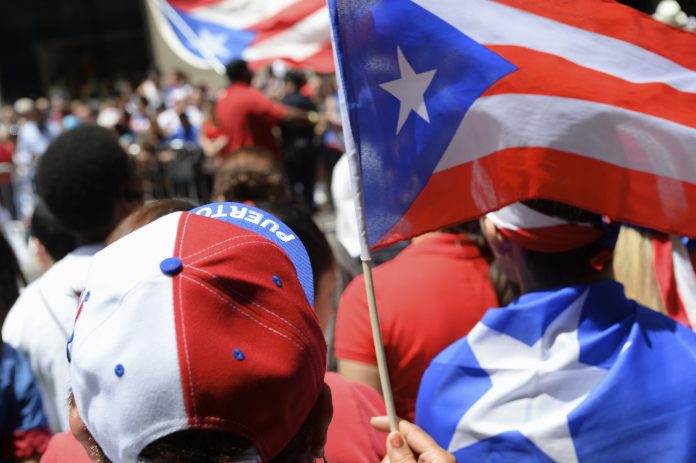By Elizabeth Hanke and Rachel Greszler
Puerto Rico’s governor, Pedro Pierluisi, signed a bill on Sept. 21 to increase the island’s minimum wage from $7.25 an hour to $8.50 in 2022, to $9.50 in 2023, and potentially to $10.50 in 2024.
That’s like mandating a $16-an-hour minimum wage on the U.S. mainland next year, rising to $20 an hour in 2024.
Pierluisi claims the law will “do justice to the working class,” but he failed to mention that higher wages for some will be accompanied by lost jobs, lower incomes, higher prices, and fewer benefits for others.
The minimum wage is a perfect example of what goes wrong when policymakers focus only on “good intentions” without regard to actual outcomes.
Sen. Bernie Sanders, I-Vt., has called it “morally imperative” to raise the minimum wage. Former New York Gov. Andrew Cuomo, a Democrat, has argued individuals “shouldn’t have to live in poverty” if they are full-time workers. And Rep. Alexandria Ocasio-Cortez, D-N.Y., has even referred to a $10-an-hour minimum wage as “legislated poverty.”
If higher minimum wages successfully reduced poverty, then Puerto Rico would serve as a model instead of a mishap. After all, the current $7.25 minimum wage already equals 68% of the island’s median wage ($10.62 an hour), compared with 36% of the mainland’s median wage.
Yet, Puerto Rico’s 43.5% poverty rate is nearly four times that of the U.S. mainland. Moreover, the island suffers from an 8.4% unemployment rate (versus 5.2% on the mainland), and a mere 44.4% labor force participation rate (versus 63% on the mainland).
And instead of “protecting” workers, the island’s minimum wage has contributed to a large underground labor market, where workers lack not only minimum wages rates, but also basic workplace protections.
Politicians’ claims that higher wages will have huge benefits and hardly any costs lack basic realities. If people’s mortgages suddenly increased 10%, 20%, or even 50%, they would have to make changes to adjust, and businesses are no different.
Take fast-food restaurants, for example. Whether they are large corporations or family-owned franchises, they all face bottom lines that would force them—if required to raise wages above the market wage—to do things like raise their prices, reduce workers’ hours and other benefits, or to replace workers with automation.
When New York City increased its minimum wage by $2 an hour, from $13 to $15, 86% of restaurants reported increasing their prices and 40% reported losing repeat customers as a result.
A Heritage Foundation report found that a $15-an-hour minimum wage would cause fast-food prices to increase by 38%. Grocery prices and other costs would also rise, hurting lower-income families, who spend a higher portion of their incomes, the most. (The Daily Signal is the news outlet of The Heritage Foundation.)
And even workers who seemingly benefit from higher wages after a minimum wage increase don’t always end up better off.
A recent study found that employers in California responded to minimum wage increases by reducing workers’ hours such that their total incomes decreased, cutting workers’ benefits (such as retirement savings and health insurance), and imposing more irregular schedules.
In many cases, minimum wage hikes hurt the people they’re intended to help.
Higher wages are a common goal, but if policymakers want to help increase workers’ wages without hurting others, they should focus on removing existing government barriers to work and higher wages, instead of enacting ones.
Making it easier for employees to pursue alternative and low-cost education options, such as apprenticeships, eliminating unnecessary occupational licensing requirements that prohibit workers from using their existing skills to make a living, and removing excessive employment mandates would be a good start for Puerto Rico.
Puerto Rico has lost 14% of its population over the past decade. If the island’s politicians remain intent on attempting to raise wages by government fiat, the loss of incomes and opportunities is likely to exacerbate the Puerto Rican exodus.
Originally published by The Daily Signal. Republished with permission.











